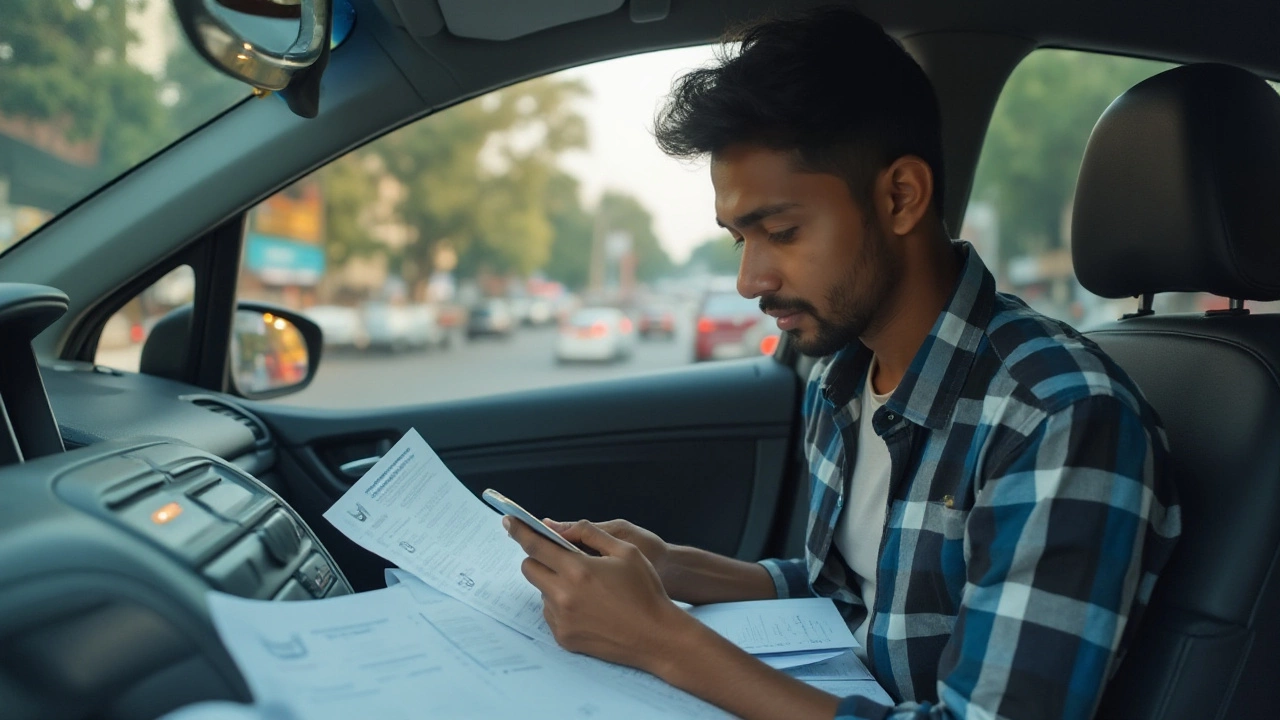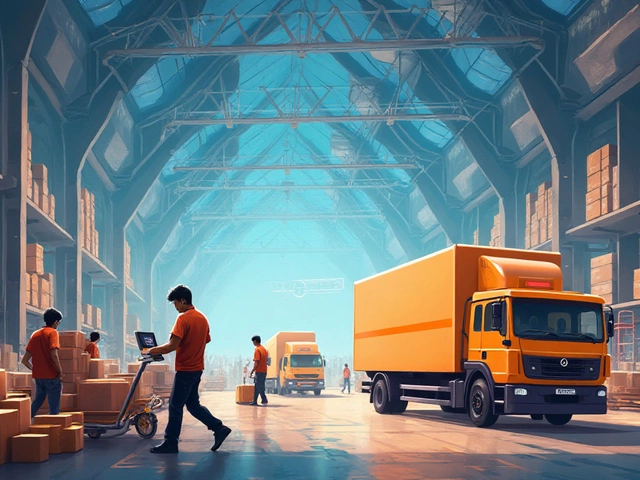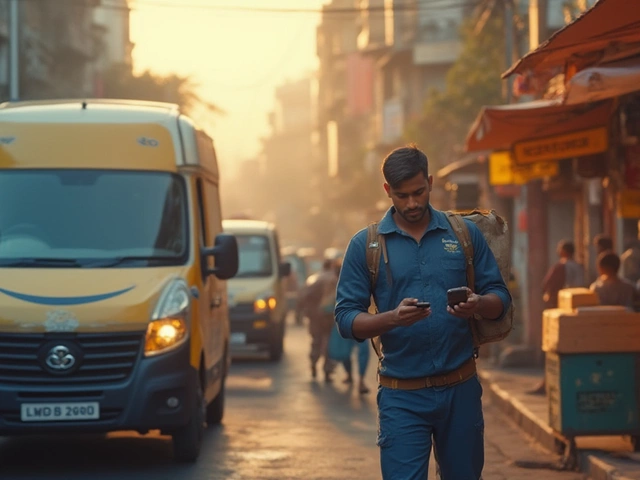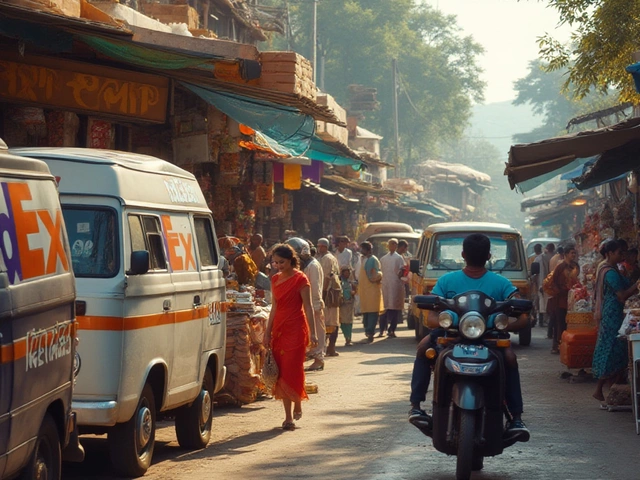Diving into the gig economy as a DoorDash driver presents a myriad of opportunities—but it also introduces the challenge of ensuring you have the right insurance coverage. As many drivers are independent contractors, understanding what kind of insurance is necessary can be daunting.
Whether weaving through city traffic or navigating suburban twists, being on the road demands more than just driving skills—it needs proper protection. From risks of collision to unforeseen mishaps, having an insurance policy that's up to par is not a luxury, but a necessity. Join us as we unravel the intricacies of insurance for DoorDash drivers, ensuring every delivery reaches its destination safely and securely.
- Why DoorDash Drivers Need Insurance
- Understanding Auto Insurance Policies
- Additional Coverage Options
- Legal Considerations for Gig Workers
- Tips for Choosing the Right Insurance
Why DoorDash Drivers Need Insurance
When you hit the roads as a DoorDash driver, you're setting the wheels in motion for more than just delivering meals—you’re creating a profession that comes with its own set of risks and responsibilities. The gig economy, while flexible, tends to bypass traditional employment benefits, notably insurance coverage. Here lies the crux of why DoorDash drivers need to consider their own insurance needs. The main concern revolves around the limited protection provided by DoorDash itself. This can create significant financial exposure for drivers if they rely solely on the platform’s offerings.
Most personal auto insurance policies explicitly exclude coverage when the vehicle is being used for commercial purposes, which includes food delivery. If you're assuming your personal policy covers you while making deliveries, you may be in for an unwelcome surprise. This gap in coverage illustrates the importance of securing a specialized auto insurance for delivery drivers. Without it, the driver might face out-of-pocket expenses, or worse, be embroiled in a lawsuit if an accident occurs. Insurance agents frequently emphasize this point when tailoring solutions for gig workers.
According to the Insurance Information Institute, "Working in the gig economy often involves driving, which can void personal auto policies that do not cater to commercial activities."
Moreover, DoorDash provides limited liability coverage that only kicks in when you have accepted an order and are on your way to pick up, transport, or deliver it. This means if you’re driving around awaiting orders, you’re not covered under their policy. Considering that many drivers spend substantial time roaming before they snag a delivery, this is a significant coverage gap. Trivial incidents can escalate into substantial liabilities, especially in rigorous urban driving conditions. For those who earn their primary income through DoorDash, overlooking such gaps could jeopardize financial stability, making tailored insurance all the more essential.
Interestingly, around 40% of those engaged in on-demand driving report being unaware of the actual coverage their policies provide while working. It's pivotal to not only embrace the knowledge surrounding delivery driver insurance but also ensure that your coverage anticipates a myriad of scenarios—be it a minor fender bender or a more severe accident. The costs associated with vehicular repairs and potential medical bills can skyrocket without proper protection in place, making it a perilous gamble for the unprotected. Additionally, there’s a growing trend among insurance companies who recognize this gap in coverage and are coming forward with tailor-made solutions for gig drivers.
Understanding Auto Insurance Policies
For DoorDash drivers, navigating the nuances of auto insurance for delivery can feel like entering an intricate labyrinth. As a gig economy worker, your personal auto insurance policy might not be enough to cover incidents that occur while you’re actively making deliveries. Most personal auto insurance policies have an exclusion clause for business use of your vehicle, leaving gig employees vulnerable during work hours. Therefore, understanding these details and choosing the right policy becomes crucial.
Comprehensive coverage on your vehicle provides peace of mind, ensuring you're shielded against damage from incidents unrelated to collisions such as vandalism or natural disasters. Meanwhile, collision coverage safeguards against any expenses incurred from accidents. Liability insurance, on the other hand, is indispensable; it covers the costs related to injuries and damages you may cause to others in the event of an accident. As a DoorDash driver, ensuring you have these coverages means you're equipped to handle potential accidents while on the clock.
According to the Insurance Information Institute, "Drivers in the gig economy should be aware that their personal auto insurance typically won't cover them when they use their personal vehicles for business purposes." This remark highlights the importance of having adequate coverage tailored to your needs as a delivery driver.
Additionally, many insurance companies now offer rideshare endorsements. These specific policies are designed to bridge the gap between personal and commercial insurance, filling in coverage gaps while you're on the app delivering orders. It’s essential to contact your insurance provider to see if they offer such endorsements and how they could integrate into your existing policy. This conversation could save you from potential headaches and costly expenses.
Another vital consideration for DoorDash drivers is uninsured/underinsured motorist coverage. This protects you if you're involved in an accident with a driver who lacks sufficient insurance. Given the unpredictable nature of today’s roads, having this coverage means you’re not alone when navigating the financial implications of such unfortunate events. Unforeseen circumstances could arise at any moment, thus, preparedness is your best ally.
To facilitate decision-making, here's an illustrative table showing the types of insurance and their benefits:
| Type of Insurance | Benefit |
|---|---|
| Comprehensive Coverage | Protects against damages not from accidents, like theft or weather damage. |
| Collision Coverage | Covers damage to your car from an accident regardless of fault. |
| Liability Insurance | Mandatory in most states; covers damages to others' property and bodily injuries. |
| Uninsured/Underinsured Motorist Coverage | Provides protection if the at-fault driver lacks sufficient insurance. |
In conclusion, understanding delivery driver insurance is more than a smart move—it's an essential part of being a responsible DoorDash driver. Investing in the right auto insurance guarantees that every trip you take stays properly protected, ensuring you can continue to deliver efficiently and safely.

Additional Coverage Options
When stepping into the role of a DoorDash driver, it’s crucial to consider more than just the basic auto insurance. While the core auto insurance policy might provide a safety net, there's an array of additional options that add layers of protection, fitting hand-in-glove with the unique demands of delivery driving. These might come in handy in scenarios that a regular policy doesn't cover, addressing the gaps and ensuring that you are not left vulnerable in the face of unexpected events. Understanding these additional coverage options not only gives peace of mind but also might save money and hassle down the line.
One notable option is the rideshare insurance, which is quintessential for anyone straddling the line between personal driving and making deliveries. This type of insurance typically bridges the gap left by personal auto policies, which might not cover incidents occurring during delivery tasks. This coverage ensures that during those in-between phases—waiting for an order or driving to a drop-off location—you’re still protected from potential accidents. Many insurance companies tailor these policies specifically for gig economy workers like those driving for DoorDash.
You may also consider adding comprehensive coverage which protects against non-collision incidents such as theft, vandalism, or weather-related damage. This is particularly relevant for those long hours spent on the road where your vehicle is your workspace. Imagine discovering your car missing after a break; comprehensive coverage is your safety net. According to Insurance Information Institute, many drivers overlook this, but it becomes essential when operating in urban environments where risks are higher.
Another critical option is the uninsured/underinsured motorist coverage. As its name implies, it protects you if you have an accident with a driver who either has insufficient insurance or none at all. Given the unpredictability of who you might share the road with, this coverage ensures you're not left shouldering expenses out of pocket. The National Association of Insurance Commissioners highlights that this is one of the most undervalued types of coverage yet extremely beneficial for delivery drivers who spend increased time on public roads.
According to Erin Collins, Executive Vice President of State Affairs at the National Association of Mutual Insurance Companies, "Having the right extra coverage can make all the difference. It's like having a well-crafted shield that protects you comprehensively, providing peace of mind amidst uncertainty."
Lastly, consider business inventory insurance if you're regularly transporting valuable goods. While this is less common for standard meal deliveries, it makes perfect sense for those venturing into other delivery niches wherein the transported items hold significant value—this type of coverage makes sure that any loss or damage to items in transit doesn't result in a financial loss.
Exploring these additional coverage options doesn't just mean more expense; rather, it’s about being savvy in ensuring that your unique driving circumstances are covered, creating a custom safety net that’s designed for you and your situation. With the gig economy bustling into 2025, striking a balance between cost and protection is vital, helping you drive DoorDash routes with both confidence and security.
Legal Considerations for Gig Workers
The rise of the gig economy has dramatically reshaped the workforce landscape, with companies like DoorDash at the forefront. Yet, this evolution has brought with it a slew of legal intricacies that DoorDash drivers must navigate. As independent contractors, gig workers have distinct legal responsibilities compared to traditional employees. Primarily, it's crucial for these drivers to understand that they bear the onus of securing their own insurance policies. While platforms like DoorDash might offer certain coverage options, these often serve as supplements rather than comprehensive solutions.
One of the foremost legal challenges faced by gig workers is classifying the nature of their work. In many jurisdictions, legislation grapples with determining whether these workers should be treated as independent contractors or employees entitled to benefits like workers compensation and unemployment insurance. For example, in California, Assembly Bill 5 (AB5) sought to reclassify many independent contractors as employees, sparking nationwide discussions and legislative actions. Understanding regional laws is therefore critical, as non-compliance could result in financial penalties or voided insurance claims.
Insurance types and requirements present another legal consideration. Standard personal auto policies typically exclude coverage for vehicles used for commercial purposes, placing an immense responsibility on drivers to ensure they've obtained suitable delivery driver insurance. This is often a requirement by law and not just a company policy, ensuring that drivers are not financially liable in the event of an accident while on a delivery. Some insurance offerings are specifically designed for gig workers, providing a blend of personal and commercial coverage, which can be vital for ensuring compliance with both state laws and gig platform requirements.
Additionally, tax obligations for gig workers differ significantly from those of typical salaried employees. While employment taxes are automatically withheld from traditional paychecks, gig workers are self-employed and must navigate quarterly estimated tax payments to local and federal tax bodies. Understanding these requirements is essential to avoid incurring penalties at the year's end. As noted by the IRS, “Gig workers may also need to make estimated tax payments, which are due in four equal installments throughout the year.”
“These considerations necessitate that drivers remain informed and consult with tax professionals to ensure all legal standards and requirements are met,” advises Tara Robinson, a seasoned tax attorney specializing in the gig economy sector.
In conclusion, while the flexibility of the gig economy offers unparalleled freedom, it comes with a hefty share of legal responsibilities. By staying informed and proactive, DoorDash drivers can effectively manage these elements and enjoy their careers with peace of mind.
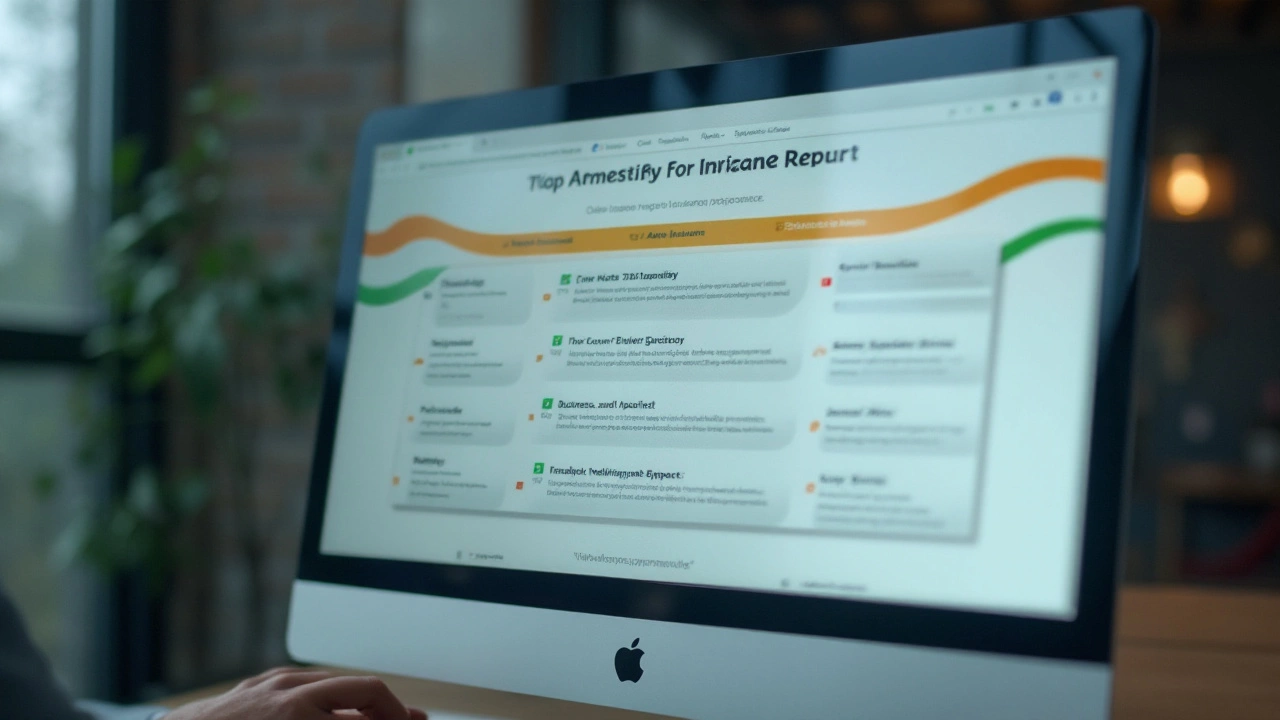
Tips for Choosing the Right Insurance
Selecting the right insurance as a DoorDash driver isn't just about adhering to legal stipulations. It's about personal security, peace of mind, and ensuring that every trip you embark on is as safe as possible. The world of delivery services is fraught with uncertainties, and having the right coverage can shield you from unexpected financial burdens. But where should you start when choosing an insurance plan?
First and foremost, understanding your basic auto insurance is essential. Most states require personal auto insurance, but in the delivery business, a standard policy might not suffice. Personal policies primarily cover private use and commuting but may exclude business activities such as food delivery. Consider a policy that explicitly supports 'business use' or look into commercial auto insurance if you spend extensive hours on the road daily. This not only ensures you have the necessary protection but also aligns with state regulations, which can vary significantly. Being informed about your local requirements is crucial.
Weighing different delivery driver insurance options can seem overwhelming. However, breaking it down into important components can simplify the process. Look at liability coverage, which protects against damages that you may cause to other vehicles or property. Similarly, comprehensive and collision insurance covers an array of damage types, from natural disasters to road accidents. When selecting plans, consider your personal risk tolerance and budget. Often, higher coverage limits equate to higher premiums but can save you a fortune during a crisis. Remember, the cheapest option may not always be the best in the long run.
Insurance providers might offer numerous optional coverages, which can be beneficial. One such add-on is uninsured/underinsured motorist protection, which can be invaluable if you're involved in an accident with a driver who lacks adequate coverage. It's also wise to explore flexible plans offered by emerging gig economy insurance providers, who tailor coverage specifically for delivery drivers. These plans often factor in the unique demands and risks faced by DoorDash drivers, providing more tailored protection.
"Understanding the gig economy's insurance needs is crucial," states an article from the Insurance Journal. "Coverage is evolving to meet the demands of this growing workforce."As the gig economy continues to expand, more innovative policies are rising to meet these needs.
Also, don't overlook discounts that can significantly reduce your premiums. Many insurers offer discounted rates to drivers who opt for higher deductibles or demonstrate safe driving records. Devices that monitor your driving habits can also earn you reductions with certain companies. Most importantly, regularly reviewing your policy is essential. Life changes, new routes, or even altering your vehicle can prompt the need for adjustments. With a plethora of choices available, taking the time to compare plans and read reviews is invaluable to find the best fit for your circumstances.
